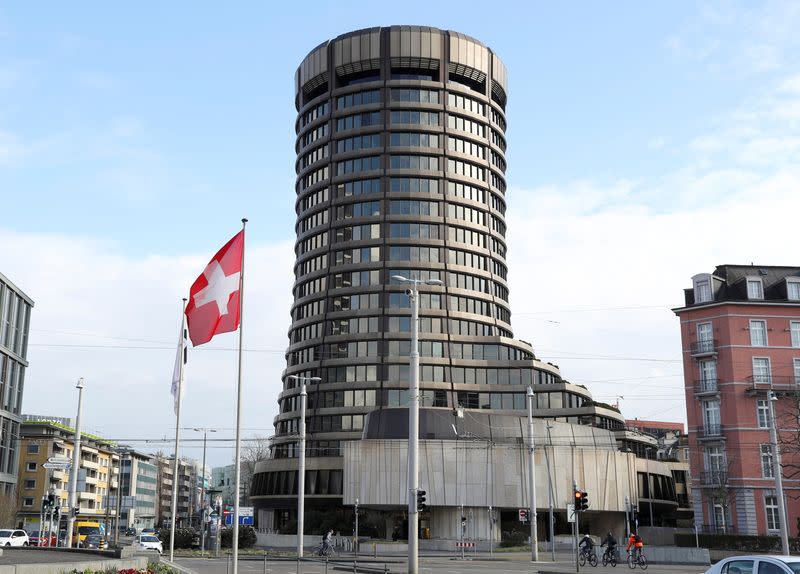Global regulators to review bank capital rules for stablecoin exposure

By Huw Jones
LONDON (Reuters) - Global banking regulators on Thursday said they would consult on potential revisions to how banks should set aside capital to cover risks from stablecoins, and crack down on "unacceptable behaviours" by some global banks.
The Basel Committee said it had taken stock of its standards for how banks should treat exposures to cryptoassets that it published a year ago.
Stablecoins are typically backed by a currency and which receive a less onerous capital treatment under Basel's rules than unbacked cryptoassets like bitcoin, but some stablecoins turned out to be less stable than touted.
Basel said it would consult later this month on "potential targeted revisions" to the criteria it had set out for "Group 1b" stablecoins that claim to have a stabilisation mechanism.
Basel had said last year it would further study if there are tests that can reliably identify low-risk stablecoins, which could be added to criteria needed for inclusion in Group 1b.
"The Committee will also consult on various technical amendments to help promote a consistent understanding of the standard," it said in a statement.
Cryptoassets that use so-called permissionless blockchains create risks that cannot be sufficiently mitigated at present, and therefore the committee agreed to retain the existing treatment for them.
The committee reviewed the risks from banks providing cryptoasset custody services, which it will continue to monitor to see if "any additional work may be needed".
The committee will consult next year on policy options to stop "window dressing" by globally systemic banks, a form of "regulatory arbitrage behaviour" that seeks to temporarily reduce banks' perceived risk profile at certain reporting times.
Global regulators slot global banks into different "buckets" based on risks based on data reported to regulators which determines how much extra capital they must hold.
"Such behaviour undermines the intended policy objectives of the Committee’s standards and risks disrupting the operations of financial markets," it said.
(Reporting by Huw Jones; Editing by David Goodman and David Evans)

 Yahoo Finance
Yahoo Finance 